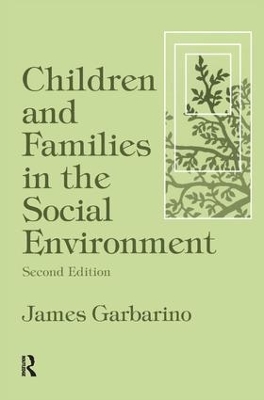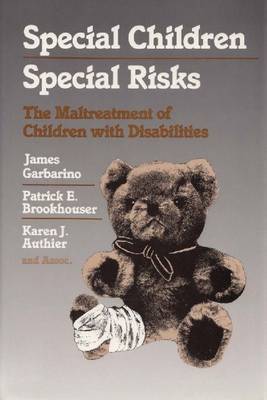Modern applications of social work
2 total works
The first edition of this volume successfully applied Bronfenbrenner's "micro-systems" taxonomy to childrearing and family life. Emphasizing how forces in the environment influence children's behavior, Garbarino has staked out an intermediate position between the psychoanalytic and the systems approach to human development. Taking cognizance of new research and of changes in American society, Garbarino has once again carefully analyzed the importance of children's social relationships. For this wholly revised second edition, he has incorporated a greater emphasis on ethnic, cultural, and racial issues.
Special Children, Special Risks
by James Garbarino, Patrick E. Brookhouser, and Karen J. Authier
How does one investigate a child maltreatment case when the victim is blind, mute, deaf, mentally retarded, or confined to an institution? Special Children, Special Risks presents analysis, recommendations, and related research from social work, psychology, psychiatry, medicine, and education essential for establishing and maintaining safe environments for handicapped children.
This book brings together a diverse group of experts to pool their knowledge and share their concerns about the risks of abuse faced by handicapped children. The contributors' perspectives come from the fields of medicine, social work, developmental psychology, psychiatry, clinical psychology, education, child welfare, law, public policy, and journalism.

